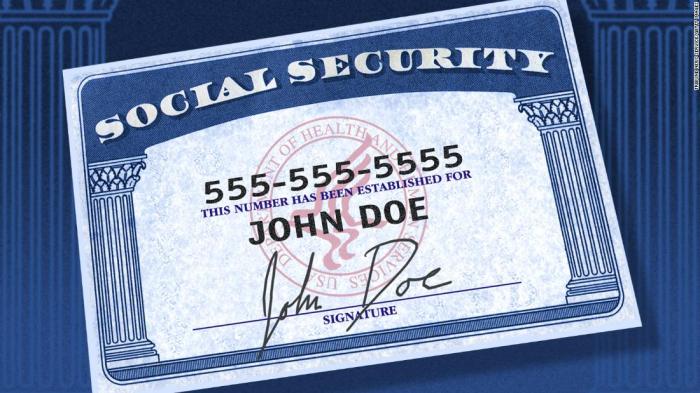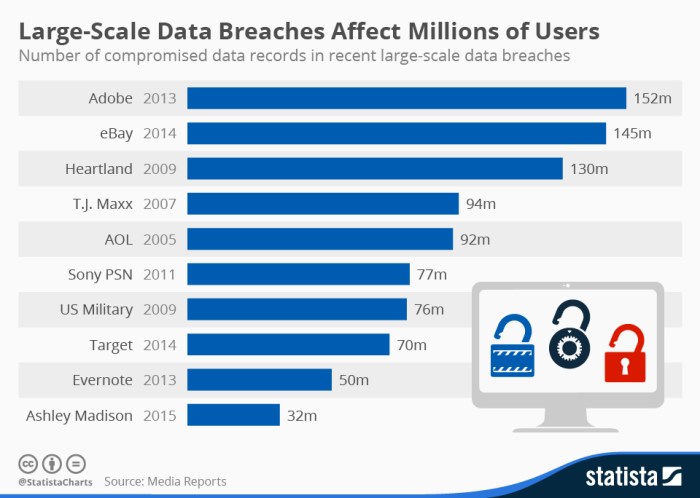In the digital age, social security number data breaches have emerged as a pervasive threat, jeopardizing the privacy and financial well-being of countless individuals. These breaches can expose sensitive information, leading to identity theft, fraud, and other devastating consequences.
The frequency and impact of social security number data breaches are alarming. According to the Identity Theft Resource Center, over 1,000 data breaches were reported in the United States in 2022 alone, affecting millions of individuals.
Social Security Number Data Breaches
Social Security Number (SSN) data breaches are a serious threat to individuals and organizations. These breaches can expose highly sensitive information, leading to identity theft, financial fraud, and other devastating consequences.
Causes and Consequences: Social Security Number Data Breach
Causes of SSN Data Breaches, Social security number data breach

- Cyberattacks (e.g., phishing, malware, hacking)
- Physical theft or loss of devices containing SSN information
- Insider breaches (e.g., disgruntled employees)
- Human error (e.g., sending emails with SSNs to wrong recipients)
Consequences of SSN Data Breaches
- Identity theft and fraud
- Financial loss (e.g., unauthorized access to bank accounts)
- Reputational damage for organizations
- Legal and regulatory penalties
Mitigation Strategies
Best Practices for Preventing SSN Data Breaches

- Implement strong cybersecurity measures (e.g., firewalls, intrusion detection systems)
- Educate employees on SSN data protection
- Limit access to SSN information to authorized individuals
- Secure physical storage of SSN data
- Use encryption and tokenization to protect SSN data
Regulatory and Legal Implications
SSN data breaches are subject to various laws and regulations, including:
- Social Security Act
- Health Insurance Portability and Accountability Act (HIPAA)
- Gramm-Leach-Bliley Act (GLBA)
- Fair Credit Reporting Act (FCRA)
Non-compliance with these regulations can result in significant penalties and fines.
Recovery and Response
Steps to Respond to an SSN Data Breach
- Identify and contain the breach
- Notify affected individuals
- Provide credit monitoring and identity theft protection services
- Investigate the breach and implement corrective measures
- Report the breach to relevant authorities and regulators
Case Studies
Notable SSN Data Breaches
- Equifax breach (2017): 147 million SSNs compromised
- Anthem breach (2015): 80 million SSNs exposed
- Yahoo breach (2013): 3 billion accounts affected, including SSNs
Lessons Learned from SSN Data Breaches

- Cybersecurity measures must be continuously updated and improved.
- Employee training is crucial for preventing insider breaches.
- Organizations must have a comprehensive data breach response plan in place.
Ultimate Conclusion
Preventing and responding to social security number data breaches requires a multi-faceted approach involving technology, policies, and employee training. Organizations must implement robust cybersecurity measures, while individuals need to be vigilant in protecting their personal information. By understanding the causes, consequences, and mitigation strategies, we can collectively safeguard our social security numbers and protect ourselves from this growing threat.
Q&A
What is a social security number data breach?
A social security number data breach occurs when sensitive information, including social security numbers, is accessed or stolen without authorization.
What are the consequences of a social security number data breach?
Consequences can include identity theft, financial fraud, and damage to reputation.
How can I protect myself from social security number data breaches?
Use strong passwords, be cautious about sharing personal information online, and monitor your credit reports regularly.